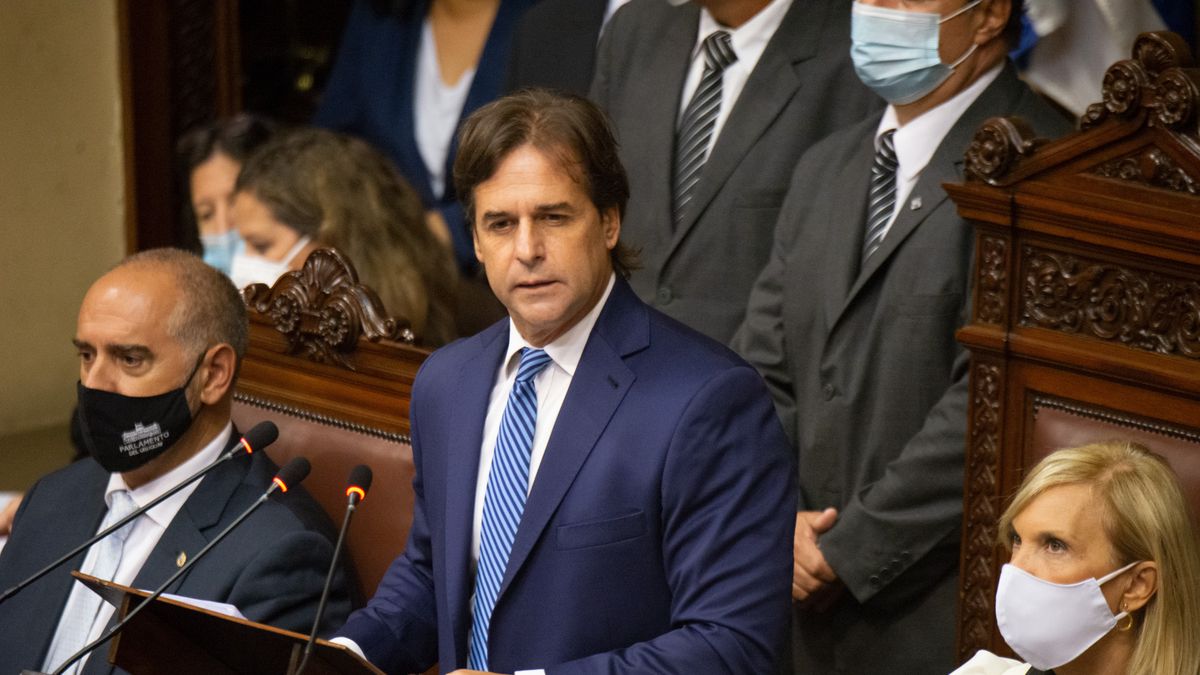March is shaping up to be a key month for two of the great economic and financial challenges of the government, with the approval in doors of the social security reform, on the one hand, already of the reduction of the Personal Income Tax (IRPF) and of the Social Security Assistance Tax (IASS)for the other.
With the official beginning of the fourth year of the management headed by the president Luis Lacalle Poutwo issues are projected to be urgent for the government, such as the kick off for the 2024 elections: the reform of the pension system, the leader of the reformist agenda of this administration, and the tax reduction, long promised and finally sent to the government. Senate after the speech of Accountabilitylast week.
This first step in the tax reform that the multicolor government intends, will have an express treatment in the Parliament even despite strong criticism from the opposition of the broad front in this regard, since he has already announced that he will support the measure with his votes; and the plan is for it to come out in the next two weeksAs reported The country.
In this sense, the forecast is that next Thursday the Treasury Commission of the Senate receives the economic team of the Executive power and approve the project, which will be sanctioned on Tuesday the 14th in the plenary session of the chamber. He will immediately go to Deputies, where he will have the same speed of treatment.
The changes in taxes that, according to the government calendar, will be in force as of April, will benefit around 83,000 Uruguayans, of which 63,000 are workers and 20,000 are retirees. In the case of the IRPF, the modifications consist mainly of increases in the deduction ceilings —which also impact the tax on liabilities—, while in the IASS the minimum non-taxable amount is increased.
The difficult social security reform
Social security reform is going through a less linear path than the tax cut, with some bumps in its way within the Special Commission of Deputies that is working on the text approved at the end of December of last year in the Upper House.
The main reason why the debate is stuck and even endangers its approval in the House of Representatives is the position of Open Town Hall (CA)who does not want to give up on his demands for the future law.
Among the requirements that the party of the Multicolor Coalition does not yield, is the fact that the number of years taken to calculate the replacement rate is less: while the current project proposes increasing it from the last 10 years —or the best 20— to 25 years, the space of Guido Manini Rios suggests that it should be 15 years.
Likewise, CA wants the minimum age established in the file, 65 years, to have more exceptions; and they demand that the Notarial Fund be excluded from the reform and that the AFAPs cannot invest their funds abroad.
The argument is that, during the debate in the Senate, the party let these issues pass to be dealt with in Deputies. However, the government rejects the proposals.
Faced with this, the Cabildo Abierto questioned the possibility of voting affirmatively for his government’s project—in addition to deepening disagreements within the coalition, differentiating itself from a possible “common program” and declaring that “it has swallowed the toad many times” in order to to “assure stability to the Executive Branch”—; and proposed postponing the vote on the reform until after the approval of the Rendición de Cuentas, which would enter Parliament on June 30.
However, the government wants the social security reform project to be approved for March 31and thus finalize the main point of his reformist agenda as far as possible from the elections.
Source: Ambito




